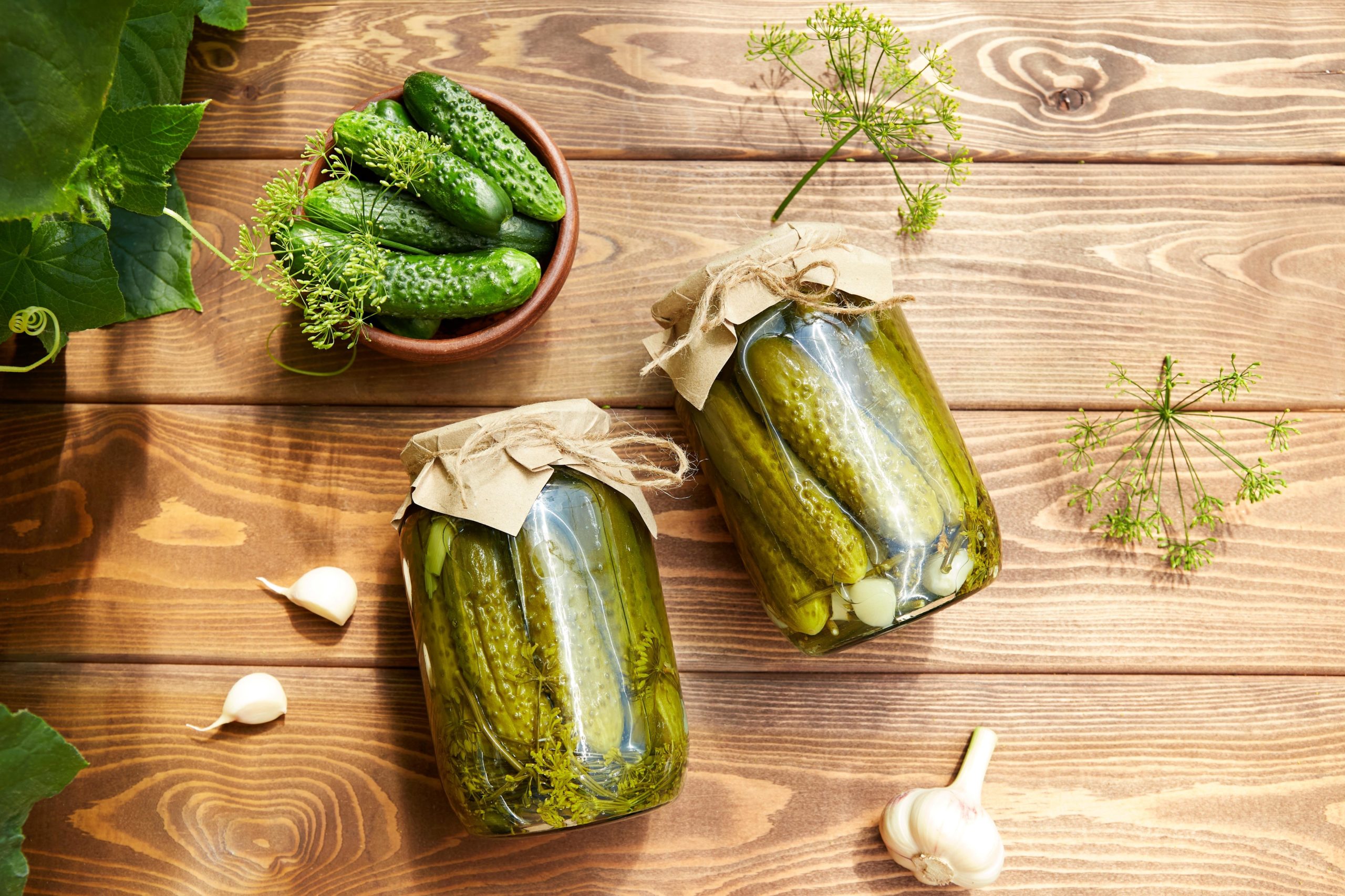
Are pickles good for you?
Pickles are crunchy, salty, sweet, packed with flavor and beloved by many as a standalone snack or condiment.
But are pickles good for you?
What exactly is a pickle?
Let’s start by defining what a pickle actually is. Almost any fruit, vegetable or meat can be pickled by preserving it in a brine of saltwater or vinegar along with various seasonings.
But when people refer to a “pickle,” they’re usually referring to one particular fruit: the cucumber. Yes, cucumbers are a fruit – not a vegetable – since they contain seeds and come from the flower of the cucumber plant. Vegetables are the other parts of plants that people eat, such as the roots, stems and leaves.
There are many kinds of pickles. Some of the most popular varieties are dill, kosher, bread and butter, gherkins, full-sour and half-sour, just to name a few. Their unique flavors are determined by the brine and seasonings in which they’re made.
The pros and cons
At first glance, it may seem that pickles would have many health benefits. After all, they’re made from cucumbers, which are low in calories and contain fiber, calcium, potassium and vitamins A, C and K. In addition, fermented pickles (pickles made with saltwater brine) contain probiotics, which can help keep your digestive system, brain and immune system healthy.
However, the process that turns cucumbers into pickles also changes the discussion regarding how nutritious they really are.
“Pickles are usually extremely high in sodium due to the salt used in the brine or added as a seasoning. This makes the health risks greater than the rewards,” said Ashley Simper, a registered dietitian at OSF HealthCare. “A typical large pickle contains about 1,100 mg of sodium, which is close to half of the recommended daily intake of sodium. So, individuals with kidney disease, heart disease or high blood pressure should limit or avoid pickles.
“Also, pickle varieties like sweet gherkins and bread and butter have added sugar. While they’re not high in sugar, it can add up to a lot if a person eats more than the serving size. So, folks need to be aware of that, especially people with diabetes.”
Are pickles good for weight loss?
As stated above, pickles made in saltwater brine contain probiotics, which are good bacteria in the intestines that promote gut health. There has been research on a possible connection between these bacteria, metabolism and weight loss. However, no definitive link has been discovered.
Want more health and wellness info?
So, instead of trying to find a magic path to weight loss by eating pickles, Ashley suggests sticking to tried-and-true practices.
“The best way to burn fat is to eat fewer calories and exercise more,” she said. “There is no specific food that can do this for you. Healthy eating to boost metabolism is done by eating consistent meals containing a variety of foods, including fruits, vegetables, whole grains, low-fat dairy, lean protein and healthy fats. And to get the benefits of probiotics in your diet, choose a low-sodium option like yogurt.”
Are pickles keto-friendly?
The ketogenic (keto) diet is a low-carb, high-fat diet that forces the body to burn ketones – produced from fat – for energy instead of blood sugar (glucose) from carbohydrates. Pickles can be part of a keto diet if they don’t contain added sugar. This means avoiding certain kinds of pickles (bread and butter, sweet gherkins, etc.) in favor of those with less sugar, like dill or sour pickles.
However, there are conflicting studies about the overall health benefits of the keto diet. Restrictive diets like this can be low in important nutrients. So, if you’re considering keto, be sure to talk to your primary care provider first.
The facts on other pickled goodies
Pickle fans are creative and have found several ways to enjoy pickles beyond pulling them straight from a jar or adding them as a topping on their favorite sandwich, burger or hot dog. For example, there are:
- Fried pickles, which are deep-fried slices of dill pickles
- Chamoy pickles, which are pickles that have been soaked in chamoy (a condiment made of fruit, dried chiles and lime juice), candy powders and a Mexican seasoning called Tajin
- Chickles, which are a new, viral trend in which a pickle spear is wrapped in a fried slice of cheese
But when it comes to thinking about your health, the same rules apply to these tasty options.
“A traditional pickle has enough sodium in it already,” Ashley said. “So, adding fat, sugar or more salt makes this an even less healthy choice.”
And similar to pickles, other popular favorites like pickled beets, pickled garlic and pickled eggs may seem to be good for you due to the vitamins, minerals or protein they naturally contain. But they’re also usually high in sodium due to the pickling process.
The bottom line
“From an overall health standpoint, the cons outweigh the pros of eating pickles on a regular basis,” Ashley said. “However, since they have certain nutrients and are low in calories, they’re a better choice than higher calorie snacks like cookies and chips. They can also be part of a healthy diet when eaten in moderation by healthy people without certain health conditions.”
If you have questions about how to have a nutritious, balanced diet, talk to your primary care provider about getting a referral to a registered dietitian.